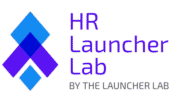You don’t need an IT department to start using AI in your HR operations. This practical guide is designed specifically for small and medium-sized businesses (SMBs) looking to test AI-powered HR tools with limited resources. In just 2 to 4 weeks, you’ll learn how to plan, launch, and evaluate a low-risk pilot program that helps you automate HR tasks, improve efficiency, and make smarter, data-driven decisions—without relying on technical staff.
- What is an AI HR Tool Pilot Test?
- Pre-Pilot Planning: Setting Your Foundation (Week -1)
- Week 1: Tool Selection and Setup
- Week 2: Pilot Launch and Initial Testing
- Week 3: Full Pilot Operation and Optimization
- Week 4: Analysis and Decision Making
- Post-Pilot: Implementation and Scaling
- Common Pilot Pitfalls and How to Avoid Them
- Budget Planning for AI HR Tool Pilots
- Measuring Long-Term Success
- Conclusion
- Read More: AI in HR
What is an AI HR Tool Pilot Test? #
An AI HR tool pilot test is a controlled trial period where you evaluate an artificial intelligence-powered human resources solution with a limited scope of users, processes, or data. Unlike a full rollout, a pilot test allows you to assess functionality, user adoption, and business impact while minimizing risk and resource investment.
Key Benefits for SMBs:
- Validate tool effectiveness before committing to annual contracts
- Identify potential integration challenges early
- Gather employee feedback and buy-in
- Measure ROI with concrete data
- Test vendor support quality
Read More: AI in HR #
Is Your HR Tech Stack AI-Ready? Build the Right Infrastructure #
Why Process Standardization Matters for Scaling Teams: A Practical Guide #
Get AI-Ready: How to Fix HR Data Hygiene #
Is Your Company Culturally Ready for AI? How to Prepare Your Team #
Practical AI in HR: 20 Use Cases with Prompts #
Chatbots vs. AI Agents in HR: Real Use Cases, Tools, and How to Choose #
Choosing AI HR Vendors: A Step-by-Step Guide #
Choosing AI HR Vendors: Mistakes Every SMB Should Avoid #
AI in HR for Small Teams: A Practical Guide by Company Stage #
Disclaimer #
The information on this site is meant for general informational purposes only and should not be considered legal advice. Employment laws and requirements differ by location and industry, so it’s essential to consult a licensed attorney to ensure your business complies with relevant regulations. No visitor should take or avoid action based solely on the content provided here. Always seek legal advice specific to your situation. While we strive to keep our information up to date, we make no guarantees about its accuracy or completeness.
This content may contain affiliate links, meaning we receive a commission if you decide to make a purchase through our links, at no cost to you.
For more details, refer to our Terms and Conditions.
